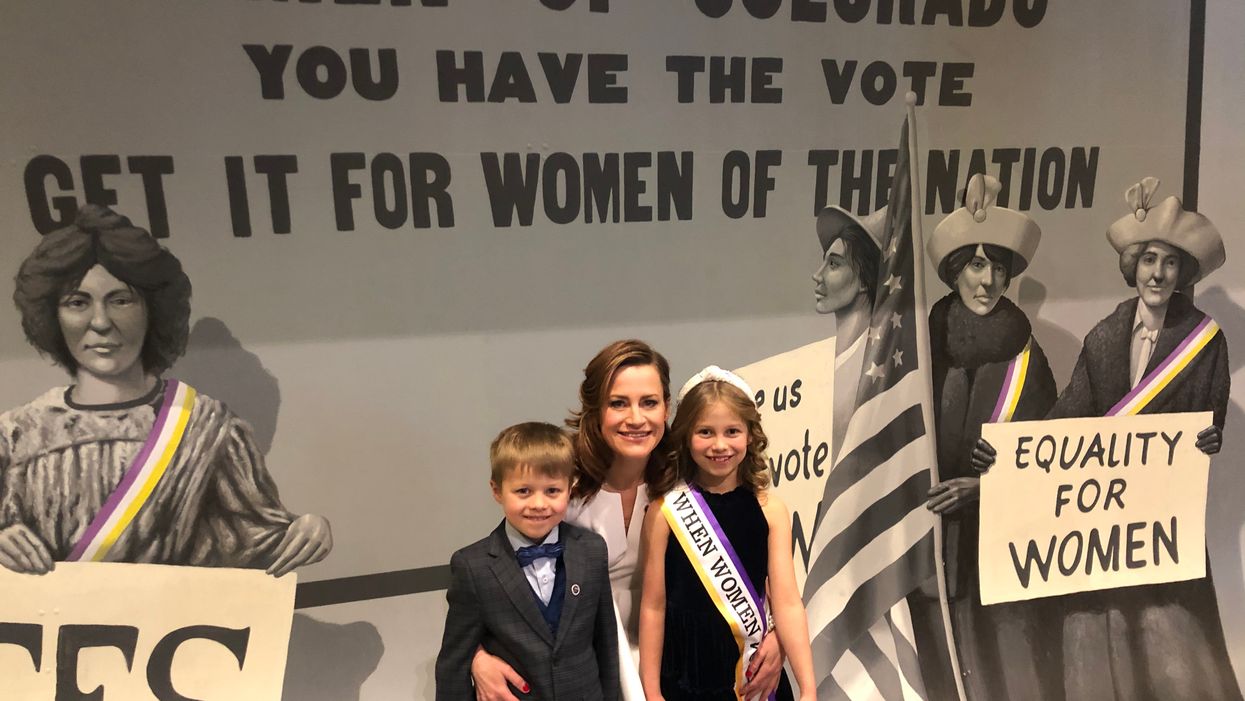The reversal of voting by mail's standing and credibility, with Donald Trump gone and Washington newly in Democratic hands, appears complete.
A symbolic capstone on the transformation — from obscure second-tier cause of democracy reformers before the pandemic, to the heart of Trump's crusade of lies about the election, and now to an established aspect of good governance — was delivered Wednesday by President Biden. He said he wanted to put Amber McReynolds, the most prominent evangelist for absentee balloting as head of the National Vote at Home Institute, on the board that oversees the Postal Service.
Assuming she is confirmed by the Senate, which seems likely given initial positive reaction to the nomination, McReynolds would bring several types of diversity to the job. She would become the only woman on the board, and also its first member with expertise about how the beleaguered USPS could become a lasting force for good in the electoral system.
Of the three Biden proposed for the board of governors, McReynolds is also the only political independent. But her tiny nonprofit advocacy group has gained outsized influence among the mainly left-leaning voting rights organizations that pushed last year to make access to the ballot box easier because of Covid-19 — and are now working to protect those gains from a barrage of Republican efforts in state capitals to roll back the rules.
Slightly more than 40 percent of all votes for president arrived in envelopes last fall — 65 million of them, tens of millions more than in previous elections, either returned by mail or put in drop boxes. The record-shattering number would surely have been higher except for two things: deficiencies in the Postal Service's ability to deliver the ballots to election offices in time to be counted, and Trump's constant false claims about the mail guaranteeing widespread election fraud.
McReynolds, who turns 42 next week, took over the fledgling Vote at Home Institute in 2018 after spending most of the previous decade as the top elections official in Denver, a time when Colorado became the first somewhat politically purple state to switch almost entirely to vote-by-mail.
But her standing in the fix-the-system world was obscure enough that, when the National Association of Nonpartisan Reformers met in Denver in December 2019, her impassioned presentation about the civic virtues of remote voting drew a smaller audience than panel discussions on money in politics or ranked-choice voting. That all changed three months later, when the pandemic took hold of the country and her organization rushed to produce a report for election officials in all 50 states detailing how they could combat the spread of disease by proactively mailing ballots to all voters and giving the option to return them in postage-paid envelopes or secure drop boxes, or with a trip to election offices or voting locations.
Biden's other nominees are Anton Hajjar, a former general counsel of the American Postal Workers Union, and Ron Stroman, who stepped down as deputy postmaster general last year. Their confirmations would mean a board with equal numbers of Democrats and Republicans, with McReynolds the partisan tie-breaker.
This could give her enormous influence over the future of the agency — starting with the fate of Postmaster General Louis DeJoy. The major Republican donor took the job last year and immediately confronted intense criticism for quick changes that prompted national mail slowdowns, and sustained skepticism that his policies were designed to make Trump's derision of voting by mail into a self-fulfilling prophecy.
The criticisms have not let up. While the election was not extensively sullied by postal problems, service delays and financial woes persist. At a testy hearing Wednesday before the House Oversight and Reform Committee, DeJoy defended his stewardship and said he would press ahead with plans to raise prices and slow the mail.
The new makeup of the board could influence the efforts by Democrats in Congress to bolster the future of mail voting, including with potential federal subsidies, in time for the 2022 midterms. That effort could help counter the restrictive absentee ballot measures now moving through many GOP-run legislatures, including those of battlegrounds Georgia, Arizona and Pennsylvania.
Some leading GOP members of Congress, even those who voted to certify the Electoral College count in the face of Trump's lies about the election, are nonetheless supporting such bills.
Former Senate Judiciary Committee Chairman Chuck Grassley of Iowa endorsed a measure, which the Repubican-majority General Assembly of his state cleared this week along party lines, that would reduce the days for early in-person voting, close polls earlier on Election Day and set stricter standards for using absentee ballots.
"State legislatures ought to be working on laws that will enhance the protection for mail-in ballots the same as what we have protection for voting in person," told reporters Wednesday. "In other words, the person that casts the ballot is the person that asks for it and is properly registered and property identified and somebody else isn't voting the ballot."




















Trump & Hegseth gave Mark Kelly a huge 2028 gift